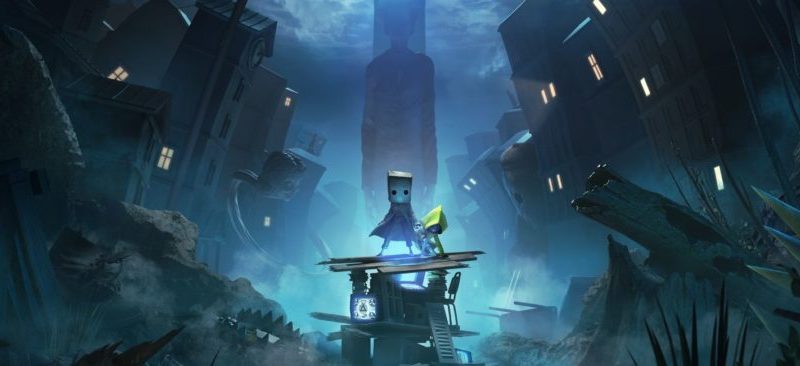Tarsier Studios senior narrative designer Dave Mervik didn’t have particularly high expectations for Little Nightmares when it was published by Bandai Namco Entertainment in 2017.
“We had no idea really when we released the first game how it would do,” he said. “When you’ve got Bandai Namco on board, you kind of quietly hope that they’ve got the reach and that they’ve seen something in it, but you need to connect with the audience.”
Audiences did connect with the puzzle platformer and its young raincoat-clad protagonist, Six. The game sold more than a million copies and inspired songs and numerous fan videos and essays positing theories about the horror game’s plot. But while Mervik said that enthusiasm inspires him, he’s trying not to think about the fans while he works on Little Nightmares II, which will be releasing next year on PC, Xbox One, PlayStation 4, and Nintendo Switch.
“That probably sounds kind of arrogant but it’s not,” he said. “It’s just trying to do what we did the first time. When we created the first game, we didn’t think about any of that stuff. It would have made us make a terrible game.”
The goal for Little Nightmares was to make players care about Six and fear for her world. Knowing how they wanted players to feel, the team just worked to convey those emotions as well as possible through the game’s art, audio, design, and storytelling. In some ways, they may have succeeded too much. The one accommodation Mervik made for fans was keeping Six in Little Nightmares II.
“I was really keen to go full new character and let people wonder what happened to Six, but people are in love with that character,” he said. “We knew there was more to tell with her as well. We still want to introduce the fact that there are other children here. It’s not just about Six.”
As a compromise, Six will serve as a companion to Mono, a new child who is trying to save his friend from fading away by venturing to the Signal Tower. The structure has a terrible effect on the people of the world through their TV screens and will be the center of the new game’s plot. While Little Nightmares focused on the theme of hunger, Little Nightmares II will be devoted to escapism.
“What do you want to escape from? In our world, why do people feel the need to escape so much into their TV shows and movies, their screens, and into completely different identities? That’s a tiny little fragment of the kind of stuff we get into,” Mervik said. “There were loads of different (theme) contenders, but you just go with what inspires us as a team.”

Having Mono and Six travel together will remove the sense of isolation from the original game, but the developers are using players’ feelings for the original character against them to build new suspense.
“As a player, you know what the buttons are and if you can make this jump or not,” he said. “Now you don’t have that, so this character you’re very connected with is a bit more distant from you. I think it introduces a really nice dynamic. How do these two children work together? What’s their story? What’s their relationship and how does it evolve? Do you still feel alone when you’re with someone else?”
While the characters travel together, Little Nightmares II will continue to eschew dialogue but still be rich in lore. Mervik said all of the characters and locations in both games and the DLC have huge histories that the team tries to convey through art, audio, and contextual puzzles. But they have to maintain a delicate balance between providing enough detail for people to engage with but not so much that they’re overwhelmed or lose the sense of mystery.
“You want to give people glimpses of different parts of the Little Nightmares universe,” he said. “It’s so nice to be exploring what would a city feel like, or a school, or a forest? A forest is generally a nice place, but with this it can’t just be a normal forest. It has to feel claustrophobic as hell, which is a fun challenge.”

Mono can pick up items to solve puzzles and even attack enemies, something that wasn’t possible at all in the original game. But Mervik doesn’t like calling the system “combat” any more than he wanted to say that Little Nightmares contained stealth.
“Combat makes you think you’ll be wading in like Kratos and dispatching enemy after enemy, whereas this is more improvisation,” he said. “We’re just giving the player a little more ability to try something else to give themselves a few more seconds to get away rather than changing the whole complexion of the game. You’re still very much a vulnerable child.”
Mervik doesn’t want to commit to a length for the new game because he said it might make the team “cut out good stuff or add bad stuff.” But he did promise that the sequel will be a lot longer and show more of the world.
“(We’ll do) how much we have to do to execute this story to perfection or as close to perfection as we can get it,” he said.
